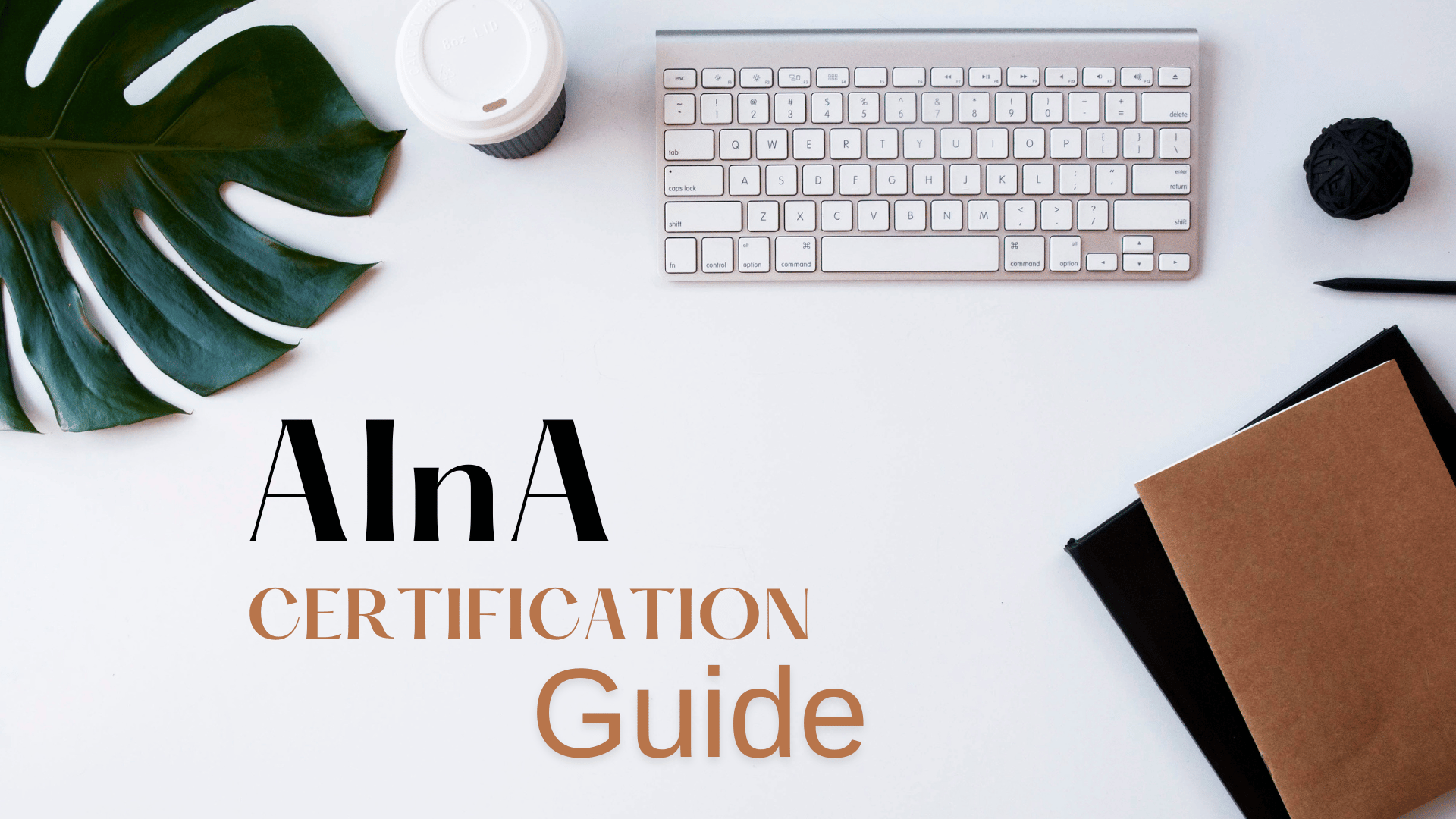Artificial Intelligence (AI) is transforming the world at an unprecedented pace, and with it comes a growing demand for professionals who can build, manage, and deploy AI-driven solutions. To validate these skills and stay competitive, many professionals pursue the AInA (Artificial Intelligence and Analytics) certification. This credential proves your ability to apply AI and analytics in real-world scenarios, making you a valuable asset in today’s data-driven economy.
If you’re planning to take the AInA exam, this guide will walk you through step-by-step preparation tips to help you succeed with confidence.
What is AInA Certification?
The AInA certification is a professional accreditation designed to validate your expertise in AI concepts, machine learning, and data analytics. It ensures that candidates not only understand theoretical foundations but also have the practical ability to apply AI models, analyze large datasets, and generate meaningful insights.
This certification is highly recommended for:
- Data scientists and analysts
- Machine learning engineers
- AI developers and researchers
- IT professionals transitioning to AI/Analytics roles
- Students who want to start a career in AI and data analytics
Why Pursue AInA Certification?
The importance of AI and analytics continues to grow across industries such as healthcare, finance, retail, and logistics. The AInA certification offers multiple benefits:
- Career Growth – Certified professionals stand out in competitive job markets.
- Skill Validation – Employers recognize your ability to handle AI/ML challenges.
- Global Recognition – The certification is acknowledged internationally.
- Higher Earning Potential – AI and analytics professionals often command premium salaries.
- Future Readiness – As businesses become more data-driven, certified experts remain relevant and adaptable.
AInA Exam Overview
The exam generally covers a wide range of topics that test both technical and analytical skills. Key areas include:
- Foundations of AI and Analytics – Core concepts, data-driven decision making.
- Mathematics and Statistics – Probability, linear algebra, optimization.
- Machine Learning Models – Regression, classification, clustering, neural networks.
- Data Analytics Tools – Python, R, SQL, and libraries like Scikit-learn, TensorFlow, and PyTorch.
- Practical Applications – Case studies, business intelligence, predictive analytics.
- Ethics and AI Governance – Data privacy, fairness, and responsible AI practices.
The test usually consists of multiple-choice questions, coding exercises, and case-based problem solving.
Step-by-Step Preparation Tips for AInA Certification
To maximize your chances of success, follow these structured preparation steps:
1. Review the Official Exam Guide
Start by downloading or reviewing the official AInA exam syllabus. This will give you clarity on key topics, exam format, and weightage. Create a study schedule that aligns with your exam date.
2. Strengthen Your Mathematical Foundation
Mathematics is the backbone of AI and analytics. Focus on:
- Linear algebra (vectors, matrices, transformations)
- Probability and statistics (distributions, hypothesis testing)
- Optimization techniques (gradient descent, cost functions)
3. Master Programming and Tools
Hands-on skills are crucial. Practice coding in:
- Python (preferred language for AI/ML)
- Libraries like Pandas, NumPy, TensorFlow, and PyTorch
- SQL for handling structured data
Build small projects like recommendation systems, chatbots, or predictive models to apply your learning.
4. Work with Real Datasets
The more you practice, the better you’ll get. Use platforms like Kaggle or UCI Machine Learning Repository to analyze real-world datasets. This will help you build confidence in data cleaning, preprocessing, and visualization.
5. Take Practice Tests
Mock exams are the best way to prepare for the real thing. They help you:
- Get familiar with the exam format
- Improve time management
- Identify weak areas for revision
6. Join Study Groups and Online Communities
Engage with other learners through online forums, LinkedIn groups, or local AI meetups. Discussions, resource sharing, and collaborative problem-solving can accelerate your preparation.
7. Focus on Ethics and AI Responsibility
Since modern AI relies heavily on responsible practices, ensure you understand:
- Bias in datasets and algorithms
- Data privacy laws like GDPR
- Fairness and accountability in AI systems
8. Revise Regularly
Consistency matters more than cramming. Schedule short daily study sessions and use revision tools like flashcards or notes to strengthen retention.
Exam Day Success Tips
- Be Prepared – Ensure all technical requirements (for online exams) are set up.
- Manage Time Wisely – Don’t get stuck on one question. Keep moving and return later.
- Read Carefully – Many questions test attention to detail, so avoid rushing.
- Stay Calm – Confidence is key. Trust your preparation and avoid stress.
Career Benefits of AInA Certification
After earning the AInA certification, you’ll be qualified for a range of career opportunities, including:
- Data Scientist
- Machine Learning Engineer
- AI Analyst
- Business Intelligence Specialist
- AI Consultant
These roles often come with high salaries and opportunities to work on cutting-edge projects in global organizations.
The AInA certification is a valuable step toward building a rewarding career in artificial intelligence and analytics. By following a structured preparation approach strengthening fundamentals, practicing hands-on coding, revising regularly, and staying updated on ethical considerations you’ll be well-prepared to ace the exam.
Remember, success isn’t about last-minute cramming but about consistent practice and application of knowledge. With the right strategy, you can pass the AInA exam and open doors to exciting opportunities in the fast-growing AI and analytics industry.

